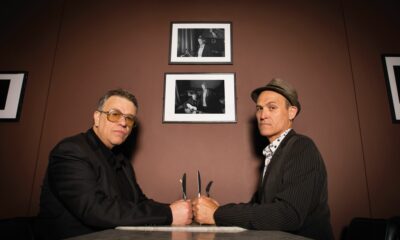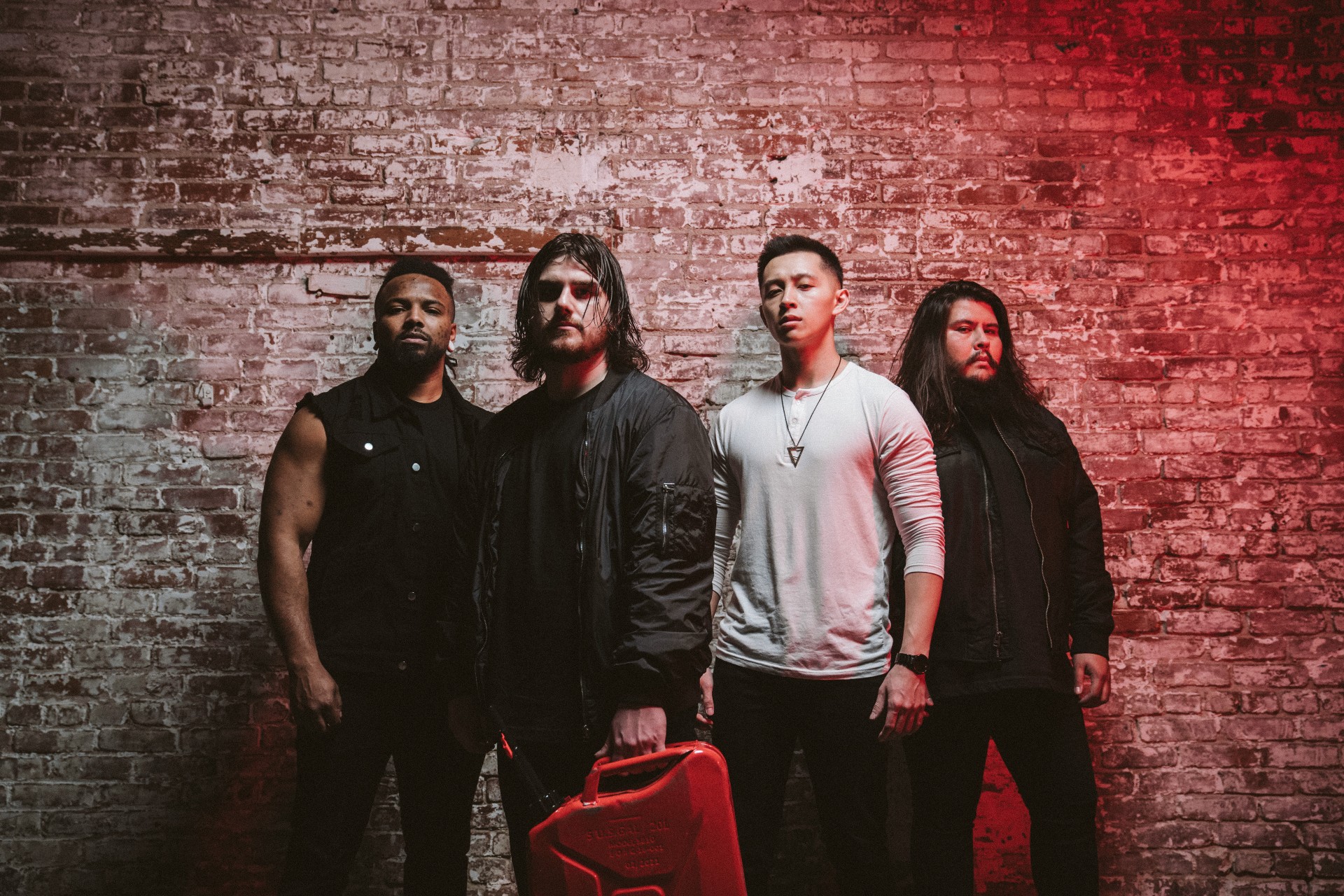Alternative/Rock
Stereo Six: Prog Rockers Dopapod Detail Their Eclectic Musical Influences
Dopapod joins us for a session of Stereo Six in which they run down the albums that helped guide them in their own, unique musical pursuits.
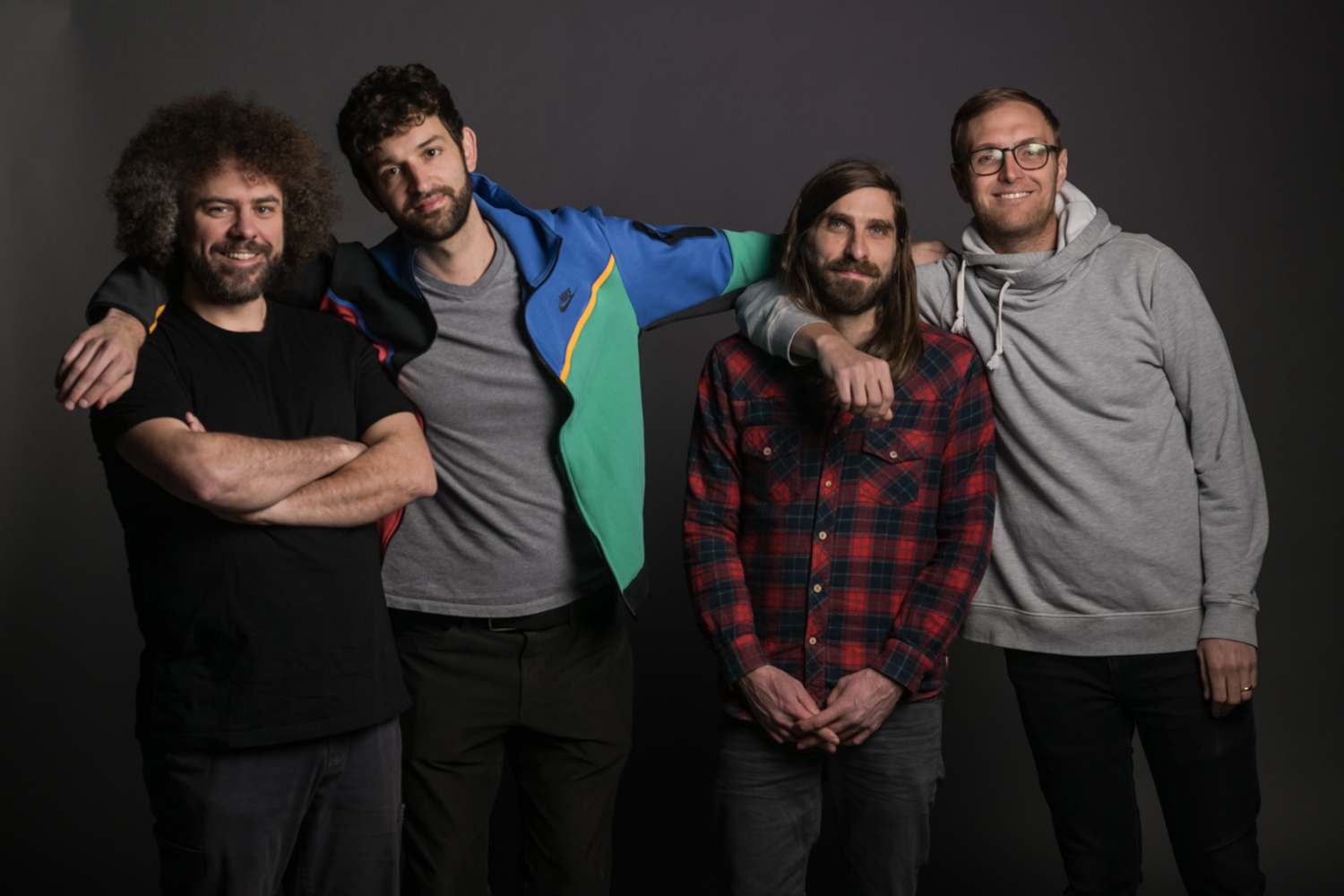
Dopapod is so much more than just a band. This is a progressive, multimedia creative exploration that joins both video and audio components to create a complete and comprehensive collective experience. The group recently released their “Grow” single and animated video, the second in an ongoing series that’s meant to bridge together the sights, sounds, and dogma of Dopapod. Each chapter that is to follow will continue to look further into the band’s mythology and provide you with something more immersive than just your typical album presented simply as a set of new songs.
From 2009 on to 2019, the band was relentless in their pursuits, writing, recording, and touring as often as possible. They then went on a brief hiatus, which was prolonged by the COVID-19 pandemic which wound up steering the quartet into a very productive period of creative reflection and musical growth. They brought a laser-focused approach into recording their new ideas, motivated by some of their favourite recurring concepts, such as time travel, balance, and binary pairs. This has been perhaps the most imaginative and productive period for Dopapod, as they were afforded the freedom to branch out in whatever direction they felt.
With “Grow” having recently been issued, and lots of new music to come, including new single “Black Holes” released today self-titled seventh album due out on May 27th, Dopapod joins us today for a session of Stereo Six in which they run down six albums that helped guide them in their own, unique musical pursuits.
1. Yes – Fragile (1971, Atlantic Records)
Eli Winderman (vocals, keyboards): “I love this album because it makes me feel like I was dropped into a completely different alien world, where all the rules are different. It sounds like it’s from another planet. I feel like no one else sounds anything like them, they’re one of a kind, especially at that time. There aren’t many bands where the keyboardist is the lead. When you think of Yes, a lot of people think of Rick Wakeman and what he added to it. For that time, Keith Emerson and Rick Wakeman were the two prog rock icons for keyboards. I didn’t even know it was a Moog (synthesizer) when I first heard it, I just thought it sounded so cool. As a young kid hearing that, it just hit me that I had never heard anything like that. And he’s using just a pipe organ, and shreds on it. ‘Fragile’ and ‘Close to the Edge’ are the two that I really love.”
2. John Scofield – Überjam (2002, Verve Records)
Winderman: “Überjam has some of the best musicianship and most unique combination of genres I’ve ever heard. John Scofield seamlessly combines jazz, funk, electronica, and more with such poise, soul, and emotion. Truly a journey from front to back. I personally really love when something sounds completely its own. I think that’s why I love Uberjam so much. You can hear the jazz vocabulary, but then there’s synthesizers, samples, and electronic drums. And there’s also incredible improvisation and solos, and the communication between all the different musicians in the moment.
“That’s the thing with Dopapod, we love that. The songs are just a vehicle for the moments where the four of us are in the moment and listening to each other, and not just listening to ourselves. And when that happens, there’s these magical unexplainable things that come together, like you’re watching a group of people on a tightrope.”
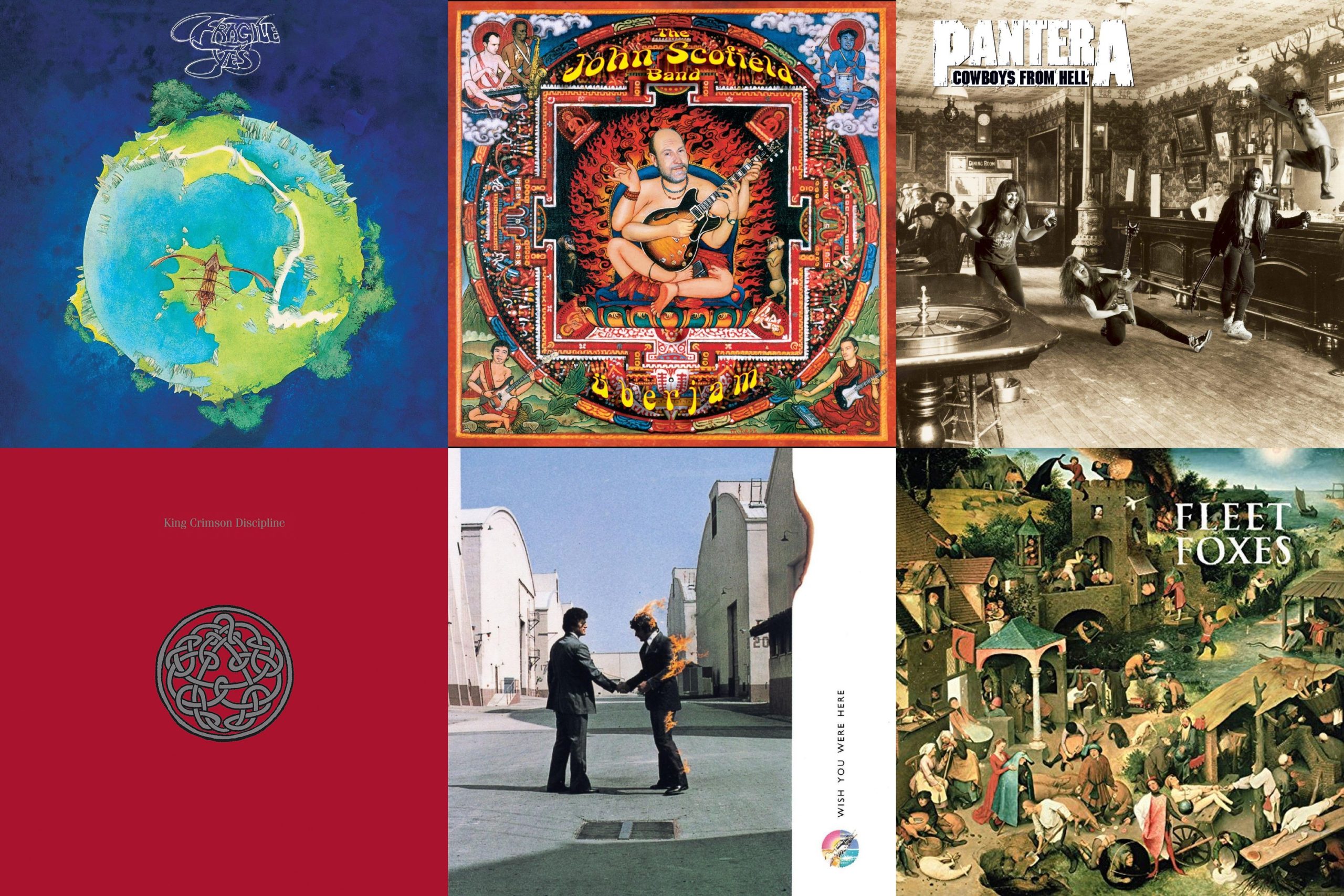
Artwork for the albums Dopapod lists in this Stereo Six
3. Pantera – Comboys From Hell (1990, Atco)
Neal “Fro” Evans (drums): “Ironically, I listened to this album on repeat on the first day I ever ditched school, I faked a doctor’s note and walked away. Somehow it was unintentionally the perfect rebel music for my actions. Cowboys from Hell just kicks the fuck ass! Dimebag Darrell and Vinnie Paul were such fun loving rockers, I knew I wanted to have that same kind of fun. I could probably say that I started playing drums because of Metallica, but when I found Pantera, it felt like something different, like it was punk rock. It’s got that really fast double bass drum stuff, but it also had this more blues aspect too. I probably couldn’t have identified at the time, but it just felt cooler. It felt badass.”
4. King Crimson – Discipline (1981, Warner Bros. Records)
Evans: “This album was one of the first presented to me by King Crimson, and they quickly became a favourite band of all time. These songs presented some of the most interesting rhythmic and harmonic ideas that were nothing like anything I had heard before. It opened my mind to a whole different realm of intentional compositional possibilities. When I was taking drum lessons, my teacher knew that I was into crazy drum parts. He would show me Tool and Dream Theater, but when he showed me Discipline, it actually was kind of a combination of even more groovy stuff. It resonated with me harmonically.
“Obviously, Robert Fripp has tons of guitar that’s not even guitar, and does this very coordinated thing between the two guitars that would make me geek THE FUCK OUT. I’d spend time just decoding it, ‘oh, this one’s in seven. And then this is a measure of nine,’ and on and on. They would superimpose those things all over each other, all over the place. They really make the odd time signatures dance.”
5. Pink Floyd – Wish You Were Here (1975, Columbia Records)
Rob Compa (guitars, vocals): “The topics and themes are so huge, conceptual, and cinematic. I also love the sounds of the instruments, the care and understatement in all the arranging, and of course the guitar playing is gorgeous beyond words. David Gilmour is still probably my favourite guitar player ever. When I first got into them, I’d already gone through like my Beatles phase. At the time I was checking out Hendrix and Stevie Ray Vaughan and all these blues guys. And David Gilmour sort of had this understatement, and this patience and melodicism that nobody else offered, everyone else was trying to shoot the lights out. He was just trying to dim them and set an ambience. I wish I could play as patiently and deliberately as he does. It’s a benchmark I’ll probably chase for the rest of my life.”
6. Fleet Foxes – Fleet Foxes (2008, Bella Union)
Compa: “This was the last album to find me in my formative young years when the music you hear will stick with you forever. The songs are so catchy yet mysterious, and there are so many layers that you can listen to it for years and years and still find new things. I feel like they struck on a new fusion of genres if you like. It’s like prog-folk.
“I remember exactly when I got into them. I was living in Boston at the time, it was probably around 2009. I was teaching music lessons at a music shop, and I had this student who wanted to learn a Fleet Foxes tune, but she actually brought in a YouTube video of these two women in Switzerland who were covering them. In retrospect, it wasn’t that far off from what I grew up with. My dad’s a folk songwriter, and he would sit around the house and strum acoustic guitar and play these really simple, beautiful songs, either Bob Dylan tunes or hundreds of his own songs. I grew up around that, but I also grew up with sort of this progressive kind of music like Pink Floyd. And I felt like Fleet Foxes did both.”
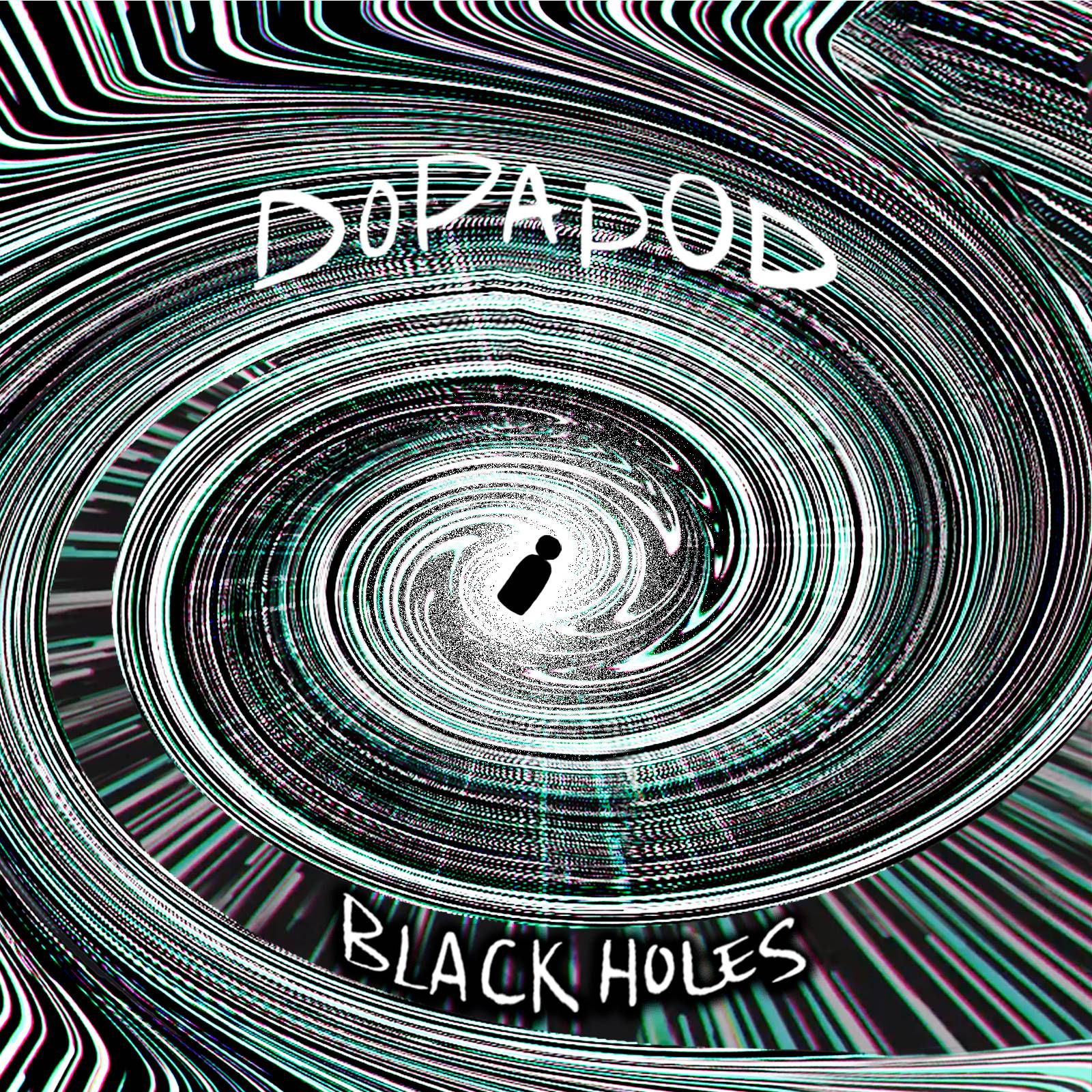
Artwork for the single “Black Hole” by Dopapod created by Tandem Media & Katie Reahl
-

 Music1 week ago
Music1 week agoTake That (w/ Olly Murs) Kick Off Four-Night Leeds Stint with Hit-Laden Spectacular [Photos]
-

 Alternative/Rock4 days ago
Alternative/Rock4 days agoThe V13 Fix #011 w/ Microwave, Full Of Hell, Cold Years and more
-

 Alternative/Rock2 weeks ago
Alternative/Rock2 weeks agoThe V13 Fix #010 w/ High on Fire, NOFX, My Dying Bride and more
-

 Features1 week ago
Features1 week agoTour Diary: Gen & The Degenerates Party Their Way Across America
-

 Culture2 weeks ago
Culture2 weeks agoDan Carter & George Miller Chat Foodinati Live, Heavy Metal Charities and Pre-Gig Meals
-

 Indie4 days ago
Indie4 days agoDeadset Premiere Music Video for Addiction-Inspired “Heavy Eyes” Single
-

 Music2 weeks ago
Music2 weeks agoReclusive Producer Stumbleine Premieres Beat-Driven New Single “Cinderhaze”
-

 Folk5 days ago
Folk5 days agoKatherine Perkins Strikes the Right Tone with Her “Hold On” Music Video Premiere

